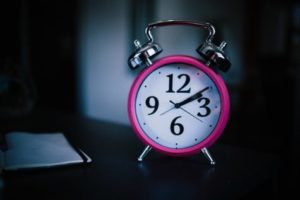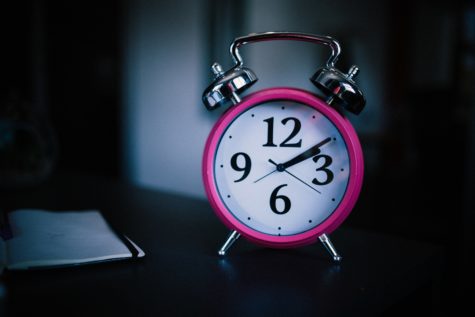PHILADELPHIA — Next week may be a busy one for police departments nationwide. A new study finds that on the Monday after Daylight Saving Time ends, documented cases of physical assault increase, with the opposite effect happening after it begins.
Researchers at the University of Pennsylvania used a multifaceted approach to determine how frequently assaults occur following the start of the annual time change, hypothesizing that violence would increase. This prediction was based on previous evidence that linked long-term sleep loss in adolescents to increased criminal and risk-taking behavior.

“In the spring, the day after we move into Daylight Saving Time, there are more car accidents, greater stock market losses, more workplace injury, reduced test scores, and higher suicide rates,” explains researcher Greg Ridgeway in a press release.
Comparing the Monday after the clock jumps forward to the Monday following, the researchers found that assaults, as a whole, fell by three percent.
“Sleep problems have previously been associated with increased antisocial and criminal behavior, so we were surprised to find that increased sleep was associated with increased offending,” says researcher Adrian Raine of the findings. “This discrepancy is likely due to the fact that 40 to 60 minutes of lost sleep in one night is just not the same as months, or even years, of poor sleep.”
Sure enough, when the researchers took a look at how “falling back”— or going back an hour in autumn — affected the incidence of assault, the outcome was the exact inverse. In other words, reported instances of assault increased by three percent, though the evidence wasn’t as strong as the finding for when Daylight Saving Time begins.
Why does Daylight Saving have an impact on crime?
While there is no clear explanation for this somewhat puzzling finding, the researchers hashed out a few possibilities, such as the presence of internal biases.
“You think, ‘If I don’t get a lot of sleep, I’m going to be cranky and angry.’ You assume that’s the way you would react,” surmises researcher Rebecca Umbach. “Your intention is to act more aggressively, but your behavior does not reflect that because you’re tired. You’re too lethargic and sleepy to act.”
The researchers note that most people don’t immediately adjust their sleep patterns to the time change, which may actually bode well.
“Before we hit that snooze button, perhaps we should stop and think,” Raine suggests. “Hit the button, and we might end up at least a little grumpier at work, and possibly more aggressive.”
The full study is published online in the Journal of Experimental Criminology.
This study was originally posted on Oct. 30, 2017.
RELATED STUDIES:
- Forget Strep! Violence Extremely Contagious Among Kids
- More Teens Sleep Deprived Than Ever Before Thanks To Smartphones, Study Finds
- Bullying Can Cause Long-Lasting Sleep Problems For Victims, Study Finds
- Survey: 4 In 10 Adult Americans Still Sleep With Teddy Bear
- Study: Poor Sleep Causes Eyewitnesses To Accuse Innocent People After Crimes
- Binge-Watching TV Shows Leads To Poor Sleep Quality, Insomnia, Study Finds
- Study: Violent Crime Causes Children To Sleep Fewer Hours, Perform Worse In School
